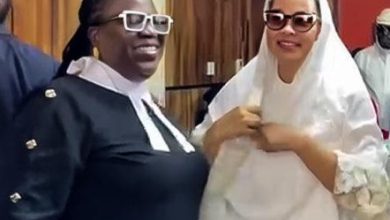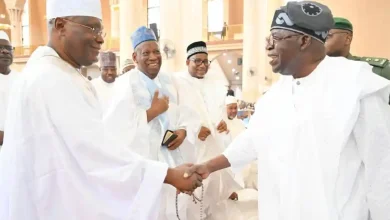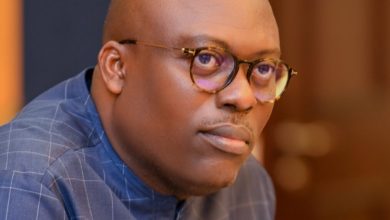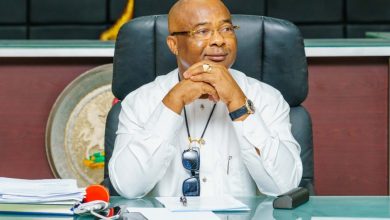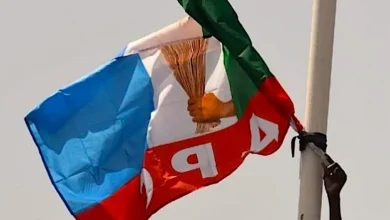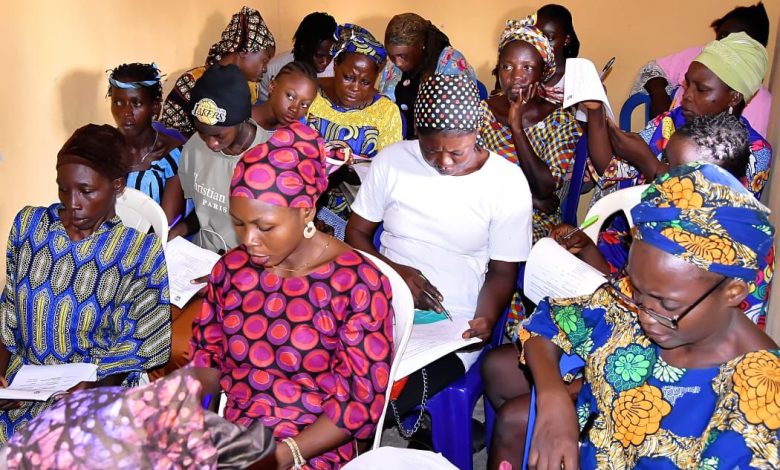
MacArthur Foundation: Ogun Central holds community engagement on gender-inclusive in elections
The Ogun Central version of the community engagement programme which focused on gender-inclusive elections in Nigeria was held on Tuesday with participation of number of participants including women, youths, persons with disabilities, and community leaders.
Penpushing reports that the programme held at Onikolobo Community Centre, Abeokuta South local government area of Ogun State was sponsored by MacArthur Foundation, and implemented by Women’s Rights Advancement and Protection Alternative (WRAPA)
The organisers include Gender Development Initiative (GenDi), Change Managers International Network, New Era for Initiative for Persons Living with Disabilities, while the programme is titled, “Elect Her Now: Voices of Gender-Inclusive Elections”.
Penpushing further reports that Miss Olayinka Oyelowo, GenDi Programme Officer explained that the programme was convened to promote inclusive electoral participation by amplifying the voices of women, youths, and persons with disabilities (PWDs), emphasizing the importance of collective effort in advancing inclusive governance
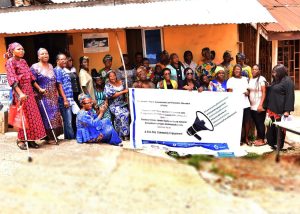
The Executive Director of Gender Development Initiative Prof. Olubunmi Ashimolowo in her opening remarks outlined the objectives of the engagement, emphasized the urgent need for building an inclusive political system where the voices of all citizens especially women, young people, and persons with disabilities (PWDs) are not only heard but also reflected in leadership and decision-making structures.
Penpushing also reports that she equally highlighted how the persistent marginalization of these groups continues to undermine democratic values and development outcomes in Nigeria.
The Executive Director pointed out that true democracy cannot thrive when significant portions of the population remain excluded from governance due to systemic barriers, cultural biases, or inaccessible political processes.
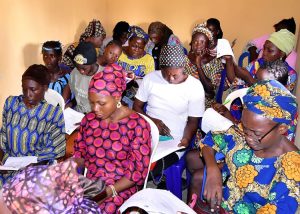
Penpushing reports that Ashimolowo called for intentional strategies and reforms that ensure proportional representation, equal opportunities, and the dismantling of discriminatory practices.
The Professor encouraged participants to see beyond voter registration and turnout, urging them to become advocates, mobilizers, and leaders within their communities, as she affirmed that sustainable governance and national progress depend on the collective engagement of all demographic groups and that the transformation of Nigeria’s political landscape starts from local actions and commitments.
Penpushing further reports that, a prominent advocate from the 100 Women Group, Chief (Mrs) Ade-Onojobi delivered a thought-provoking presentation on the significance of gender equality, inclusive electoral reforms, and the role of grassroots policy engagement in strengthening democracy.
The advocate began by contextualizing the historical exclusion of women and marginalized groups from Nigeria’s political processes, stressing that achieving meaningful progress requires dismantling deeply entrenched systems of inequality.

Penpushing also reports that she emphasized that democracy is not merely about holding elections, but about ensuring that every segment of society regardless of gender, age, or physical ability has equal access to participation, representation, and influence in governance.
The Non-Governmental Organisation boss stated that a truly functional democracy must reflect the diverse voices and experiences of its people, particularly those who have been historically silenced or ignored.
Penpushing reports that Ade-Onojobi called for urgent reforms in electoral processes and policies that often serve as barriers to women’s and People With Disability(PWDs’) participation., and equally challenged the community to support inclusive candidate selection processes, build platforms for women leaders, and actively promote policy advocacy at the grassroots level to ensure that these groups are not just voters but decision-makers.
Meanwhile, following her presentation, the session opened up for participant contributions, allowing individuals to share their lived experiences, personal stories, and reflections, while these testimonies revealed a range of challenges including political exclusion, threats of electoral violence, cultural and religious norms that suppress female ambition, lack of financial resources for political campaigns, and limited support systems for PWDs in political spaces.
FOOTNOTE: You want to share story with us? You want to advertise with us? You need publicity for product, or service, or event? Contact us on WhatsApp +2348073463653 or email penpushing@yahoo.com



